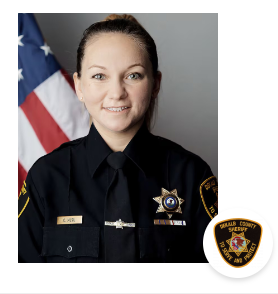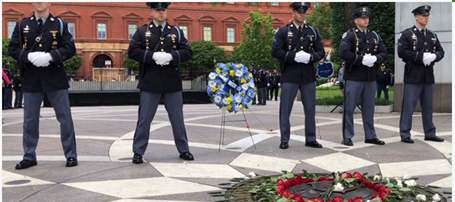- MADD Roll Call Series | MADD Law Enforcement Impaired Driving Roll Call Video Series
- MADD’s 2021 Court Monitoring Report | Effective Court Monitoring
- MADD/Ipsos Poll | Consumers Support Drunk Driving Prevention Systems in Cars
- DRUG-IMPAIRED DRIVING ENFORCEMENT TRAINING (DIDET)
- Drug Impaired Driving Enforcement
Training Opportunities Available | Training in Advanced Roadside Impaired Driving Enforcement (ARIDE) and as Drug Recognition Experts (DRE) - Drugged Driving | Dangers of Prescription Drug Consumption and Driving
- MADD’s Marijuana Survey Report | Misconceptions about Marijuana Consumption and Driving
- Legislation | Check Out Your State’s Legislature
- NHTSA Traffic Safety Facts | Overview of Motor Vehicle Crashes in 2019
- NHTSA | State Alcohol-Impaired Driving Estimates for 2018
- NHTSA Early Estimates of Motor Vehicle Traffic Fatalities | First Quarter of 2020
- NTHSA RFI | Available or late-stage technology under development for impaired driving detection and mitigation
- TOOFS | MADD and Waymo’s Tie-One-On For Safety Holiday Campaign
- 2021 National Lifesavers Conference | Register
- IACP | Traffic Enforcement During the COVID-19 Pandemic Processing DUIs during the COVID-19 Pandemic: Considerations for Law Enforcement Safe, Quick Clearance of Traffic Incidents toolkit Policy Framework for Improved Community-Police Engagement
- Warriors’ Ascent | Providing hope and healing to Veterans and First Responders suffering from Post Traumatic Stress
Law Enforcement Support


May 2024 Mission Moment Deputy Christina Musil DeKalb County Sheriff’s Office, Illinois
On March 29, 2024, Deputy Sheriff Christina Musil was killed when her patrol car was struck by a commercial vehicle on Illinois 23 south of Perry Road at about 10:40 pm. She was parked on the shoulder of the roadway when the approaching vehicle struck the rear of the patrol car. She was transported to a local hospital where she succumbed to her injuries. The driver was originally cited for failing to reduce speed to avoid an accident, improper lane usage, and operating an uninsured motor vehicle But six days later, he was charged with three counts of aggravated DUI and one count of reckless homicide. Deputy Musil was an Illinois Army National Guard Military Police Afghanistan War veteran and had served with the DeKalb County Sheriff's Office for five years. She is survived by her three children, parents, brother, and sister.

Celebrating Progress… and Staying in the Fight James Tobin, retired law enforcement Section Manager - Substance Abuse & Mental Health Programming Yavapai County Community Health Services, Prescott, AZ
Hello traffic-safety partners! Consider the following U.S. impaired driving statistics: • A report from the National Institute of Alcohol and Alcoholism states “Alcohol-related highway fatalities were at an all-time high in 1970, and there were an estimated 100,000 alcohol-attributable deaths in the United States” (Modad et al. 2004; NIAAA 1997). • The Mothers Against Drunk Driving website indicates that prior to 1980 approximately 25,000 people were killed on American roadways each year. • The Centers for Disease Control (C.D.C.) reports that in 2020, 11,654 people were killed in motor vehicle crashes involving alcohol-impaired drivers (accounting for 30% of all traffic-related deaths in the United States). Given the increased numbers of cars and drivers (and miles of roadway) in the United States since the early 1970’s, the statistics listed above represent a healthy and positive environmental change. Tremendous progress has been made, right? The answer is “Yes, but…” In 1997 I was in the police academy in northern Arizona. Toward the end of the academy, we had a block of training called “D.U.I. week.” This training provided the basic tools needed to investigate impaired driver cases on the streets and roadways we’d soon be patrolling. Toward the end of the week, there was a guest speaker: Sharon Sikora, who’d helped start M.A.D.D in Arizona. Sharon was a D.U.I. crash victim survivor, and she told us how she‘d been burned alive in her car as the result of another person’s selfish decision to drive while impaired. She concluded her talk by telling us to use our training to get drunks off the road so that someone else didn’t suffer as she had. It was a lightbulb moment for me. Sharon’s talk helped me find a passion for my upcoming police career. In 2000, I attended a traffic safety conference in Phoenix. The Arizona Director of the Governor’s Office of Highway Safety (G.O.H.S.) Alberto Gutier told us his goal was to eradicate impaired driving on Arizona roadways. He said he wanted to stigmatize drunk driving; the same way smoking had been stigmatized in our culture in the past 50 years. I appreciated Director Gutier’s ambition, but truthfully, I thought he was shooting for the moon. “It will never happen,” I thought to myself. In those days it was easy to find seriously impaired drivers with extremely high BAC’s. Over the years, though, I noticed something: it became increasingly more difficult to find impaired drivers (even, or especially, on big drinking days like New Year’s Eve, St. Patrick’s Day, Cinco De mayo, etc.). The impaired drivers were still out there, to be sure, but the dedicated messaging of M.A.D.D. and other traffic safety groups---coupled with greater numbers of well-trained and resourced police officers---was working. The number of impaired driving fatalities on American roadways continued to decline every year, and we celebrated when alcohol impaired fatalities went below 10,000 for the first time ever in 2011. (www.nhtsa.gov). To a large extent, impaired driving has been stigmatized in our culture. Many drivers---young drivers especially, in my experience--- have gotten the message that impaired driving is not an option. They plan ahead, they use a designated driver, they take a cab or an Uber. Alcohol-impaired fatalities declined 50% between 1982 and 2018 (www.responsibility.org) . Unfortunately, the problem of impaired driving hasn’t been eradicated. As the website Responsibility.org points out, “Hardcore drunk drivers continue to wreak havoc on our nation’s roadways” We should acknowledge the great progress that’s been made since the early 1970’s. At the same time, we should also be concerned about the up-tick in alcohol and (especially) drug-impaired-driver fatalities since 2011 (The 11,654 impaired driver deaths reported in 2020 represented a 14% increase from 2019). All of us---traffic safety advocates, parents, community health stakeholders, elected officials, criminal justice system partners, etc.- must re-dedicate ourselves to this effort. We need to remain vigilant, and we need to hold onto the valuable ground that’s been gained. Now more than ever, we have to stay in the fight.

MADD May 2024 Officer of the Month The 137 Officers who made the Ultimate Sacrifice and gave their lives in the line of duty protecting America in 2023. “It is not how these officers died that made them heroes, it is how they lived.”
In 1962, President John F. Kennedy signed Public Law 87-726 designating May 15 as Peace Officers Memorial Day, and the week in which May 15 falls as National Police Week. While the actual date changes from year to year, National Police week is always the calendar week, beginning on Sunday, which includes May 15. This year National Police week is May 12-18, 2024. In honor of 2024 National Police Week and Law Enforcement Memorial Day, MADD honors, as its May 2024 Officer of the Month, the 137 law enforcement officers who made the ultimate sacrifice and died in the line of duty in 2023. We honor the fallen and their families, and we are grateful for the sacrifices they made to keep our communities safe. The National Law Enforcement Officers Memorial is centered in the 400 block of E Street, NW, Washington, DC and is the nation’s monument to law enforcement officers who have died in the line of duty. Dedicated on October 15, 1991, the Memorial honors federal, state and local law enforcement officers who have made the ultimate sacrifice for the safety and protection of our nation and its people.
The National Law Enforcement Officers Memorial is centered in the 400 block of E Street, NW, Washington, DC and is the nation’s monument to law enforcement officers who have died in the line of duty. Dedicated on October 15, 1991, the Memorial honors federal, state and local law enforcement officers who have made the ultimate sacrifice for the safety and protection of our nation and its people.
 The Memorial features two curving, 304-foot-long blue-gray marble walls. Carved on these walls are the names of more than 24,000 officers who died in the line of duty throughout U.S. history, dating back to the first known death in 1786. Unlike many other memorials in Washington, DC, the National Law Enforcement Officers Memorial is ever-changing: new names of fallen officers are added to the monument each spring, in conjunction with National Police Week.“It is not how these officers died that made them heroes, it is how they lived.”
Vivian Eney Cross, Survivor
“The wicked flee when no man pursueth: but the righteous are as bold as a lion.”
Proverbs 28:1
The Memorial features two curving, 304-foot-long blue-gray marble walls. Carved on these walls are the names of more than 24,000 officers who died in the line of duty throughout U.S. history, dating back to the first known death in 1786. Unlike many other memorials in Washington, DC, the National Law Enforcement Officers Memorial is ever-changing: new names of fallen officers are added to the monument each spring, in conjunction with National Police Week.“It is not how these officers died that made them heroes, it is how they lived.”
Vivian Eney Cross, Survivor
“The wicked flee when no man pursueth: but the righteous are as bold as a lion.”
Proverbs 28:1
 “Carved on these walls is the story of America, of a continuing quest to preserve both democracy and decency, and to protect a national treasure that we call the American dream.”
President George H.W. Bush
“Carved on these walls is the story of America, of a continuing quest to preserve both democracy and decency, and to protect a national treasure that we call the American dream.”
President George H.W. Bush
 The National Law Enforcement Officers Memorial Fund (NLEOMF) (along with Concerns of Police Survivors, the Fraternal Order of Police and the FOP Auxiliary) is a principal organizer of National Police Week, the annual tribute to law enforcement service and sacrifice that is held each May in Washington, DC.
This year, 282 new names will be engraved on the walls of the National Law Enforcement Officers Memorial in Washington, DC. With these additions, there will now be 24,067 officers’ names engraved on the Memorial, representing all 50 states, the District of Columbia, U.S. territories, federal law enforcement, and campus and military police agencies.
The NLEOMF will host a Virtual Candlelight Vigil on May 13 at 8:00 p.m. to memorialize those who sacrificed all for their communities. National Police Week in-person events will be held May 13-18, 2024, in Washington, DC.
To see a full listing and the stories of the 137 law enforcement heroes that made the ultimate sacrifice while protecting American Citizens in 2023, click on the link below.
https://www.odmp.org/search/year/2024
The National Law Enforcement Officers Memorial Fund (NLEOMF) (along with Concerns of Police Survivors, the Fraternal Order of Police and the FOP Auxiliary) is a principal organizer of National Police Week, the annual tribute to law enforcement service and sacrifice that is held each May in Washington, DC.
This year, 282 new names will be engraved on the walls of the National Law Enforcement Officers Memorial in Washington, DC. With these additions, there will now be 24,067 officers’ names engraved on the Memorial, representing all 50 states, the District of Columbia, U.S. territories, federal law enforcement, and campus and military police agencies.
The NLEOMF will host a Virtual Candlelight Vigil on May 13 at 8:00 p.m. to memorialize those who sacrificed all for their communities. National Police Week in-person events will be held May 13-18, 2024, in Washington, DC.
To see a full listing and the stories of the 137 law enforcement heroes that made the ultimate sacrifice while protecting American Citizens in 2023, click on the link below.
https://www.odmp.org/search/year/2024Newsletter Archives
MADD extends our deepest condolences to the agencies and families who have lost officers and loved ones in the line of duty
-
 Detective Corporal Christopher Mock suffered a fatal heart attack after responding to multiple investigations.
On October 3, 2025, Detective Mock was called to the scene of a homicide. During the investigation,...
Read More
Detective Corporal Christopher Mock suffered a fatal heart attack after responding to multiple investigations.
On October 3, 2025, Detective Mock was called to the scene of a homicide. During the investigation,...
Read More
-

 Police Officer David Cajuso was killed in a motorcycle crash on Interstate 75 in Hialeah.
Around 11:35 a.m., Officer Cajuso was driving on Interstate 75 near NW 138th Street when...
Read More
Police Officer David Cajuso was killed in a motorcycle crash on Interstate 75 in Hialeah.
Around 11:35 a.m., Officer Cajuso was driving on Interstate 75 near NW 138th Street when...
Read More
-

 Deputy Sheriff Andrew Nuñez was shot and killed near a residence in the 12300 block of Hollyhock Drive in Rancho Cucamonga at approximately 12:37 p.m.
Deputy Nuñez was responding to a...
Read More
Deputy Sheriff Andrew Nuñez was shot and killed near a residence in the 12300 block of Hollyhock Drive in Rancho Cucamonga at approximately 12:37 p.m.
Deputy Nuñez was responding to a...
Read More
-

 Sergeant Thomas Duran succumbed to injuries sustained in a hit-and-run crash while conducting a traffic stop on Watts Street near Wilson Street in El Reno.
Shortly before 2:00 a.m., Sergeant Duran...
Read More
Sergeant Thomas Duran succumbed to injuries sustained in a hit-and-run crash while conducting a traffic stop on Watts Street near Wilson Street in El Reno.
Shortly before 2:00 a.m., Sergeant Duran...
Read More
-

 Deputy Sheriff Joshua Brashears was killed in a single-vehicle crash on Highway 15 around 5:30 a.m.
While driving on Highway 15, south of East McHenry Road, his patrol vehicle struck two...
Read More
Deputy Sheriff Joshua Brashears was killed in a single-vehicle crash on Highway 15 around 5:30 a.m.
While driving on Highway 15, south of East McHenry Road, his patrol vehicle struck two...
Read More
-

 Police Officer Lauren Craven was struck and killed while helping at the scene of a vehicle collision on Interstate 8 near Waring Road.
Around 10:20 p.m., a car traveling eastbound...
Read More
Police Officer Lauren Craven was struck and killed while helping at the scene of a vehicle collision on Interstate 8 near Waring Road.
Around 10:20 p.m., a car traveling eastbound...
Read More
-

 Trooper Nicky Cayton was struck and killed by the driver of a Mack truck on the northbound lane of Route 11 in Canfield around noon.
Trooper Cayton responded to a disabled...
Read More
Trooper Nicky Cayton was struck and killed by the driver of a Mack truck on the northbound lane of Route 11 in Canfield around noon.
Trooper Cayton responded to a disabled...
Read More
-

 K9 Jericho succumbed to injuries he received while participating in a training exercise.
While performing an exercise, K9 Jericho endured blunt force trauma when he struck a hard metal object while...
Read More
K9 Jericho succumbed to injuries he received while participating in a training exercise.
While performing an exercise, K9 Jericho endured blunt force trauma when he struck a hard metal object while...
Read More
-

 Police Officer Henry Franklin was shot and killed while serving a warrant with his tactical team on County Road 408 in Mississippi County at approximately 7:30 p.m.
On Monday evening, Officer...
Read More
Police Officer Henry Franklin was shot and killed while serving a warrant with his tactical team on County Road 408 in Mississippi County at approximately 7:30 p.m.
On Monday evening, Officer...
Read More
-

 Deputy Sheriff Charles Riley was shot and killed while interviewing a suspect at the Iberville Parish Courthouse at 58050 Merram Street in Plaquemine.
Around 8:00 p.m., Deputy Riley and a detective...
Read More
Deputy Sheriff Charles Riley was shot and killed while interviewing a suspect at the Iberville Parish Courthouse at 58050 Merram Street in Plaquemine.
Around 8:00 p.m., Deputy Riley and a detective...
Read More
For a complete listing of Officers lost in the line of duty, please visit: www.odmp.org
Newsletter Archives
Resources
- MADD Roll Call Series | MADD Law Enforcement Impaired Driving Roll Call Video Series
- MADD’s 2021 Court Monitoring Report | Effective Court Monitoring
- MADD/Ipsos Poll | Consumers Support Drunk Driving Prevention Systems in Cars
- DRUG-IMPAIRED DRIVING ENFORCEMENT TRAINING (DIDET) | Get support for your DIDET program!
- Drug Impaired Driving Enforcement
Training Opportunities Available | Training in Advanced Roadside Impaired Driving Enforcement (ARIDE) and as Drug Recognition Experts (DRE) - Drugged Driving | Dangers of Prescription Drug Consumption and Driving
- MADD’s Marijuana Survey Report | Misconceptions about Marijuana Consumption and Driving
- Legislation | New York .05% BAC Vermont .05 Per Se Law Vermont ignition interlocks Vermont advanced technology
- NHTSA Traffic Safety Facts | Overview of Motor Vehicle Crashes in 2019
- NHTSA | State Alcohol-Impaired Driving Estimates for 2018
- NHTSA Early Estimates of Motor Vehicle Traffic Fatalities | First Quarter of 2020
- NTHSA RFI | Available or late-stage technology under development for impaired driving detection and mitigation
- TOOFS | MADD and Waymo’s Tie-One-On For Safety Holiday Campaign
- 2021 National Lifesavers Conference | Register
- IACP | Traffic Enforcement During the COVID-19 Pandemic Processing DUIs during the COVID-19 Pandemic: Considerations for Law Enforcement Safe, Quick Clearance of Traffic Incidents toolkit Policy Framework for Improved Community-Police Engagement
- Warriors’ Ascent | Providing hope and healing to Veterans and First Responders suffering from Post Traumatic Stress



 Detective Corporal Christopher Mock suffered a fatal heart attack after responding to multiple investigations.
On October 3, 2025, Detective Mock was called to the scene of a homicide. During the investigation,...
Detective Corporal Christopher Mock suffered a fatal heart attack after responding to multiple investigations.
On October 3, 2025, Detective Mock was called to the scene of a homicide. During the investigation,... 
 Police Officer David Cajuso was killed in a motorcycle crash on Interstate 75 in Hialeah.
Around 11:35 a.m., Officer Cajuso was driving on Interstate 75 near NW 138th Street when...
Police Officer David Cajuso was killed in a motorcycle crash on Interstate 75 in Hialeah.
Around 11:35 a.m., Officer Cajuso was driving on Interstate 75 near NW 138th Street when... 
 Deputy Sheriff Andrew Nuñez was shot and killed near a residence in the 12300 block of Hollyhock Drive in Rancho Cucamonga at approximately 12:37 p.m.
Deputy Nuñez was responding to a...
Deputy Sheriff Andrew Nuñez was shot and killed near a residence in the 12300 block of Hollyhock Drive in Rancho Cucamonga at approximately 12:37 p.m.
Deputy Nuñez was responding to a... 
 Sergeant Thomas Duran succumbed to injuries sustained in a hit-and-run crash while conducting a traffic stop on Watts Street near Wilson Street in El Reno.
Shortly before 2:00 a.m., Sergeant Duran...
Sergeant Thomas Duran succumbed to injuries sustained in a hit-and-run crash while conducting a traffic stop on Watts Street near Wilson Street in El Reno.
Shortly before 2:00 a.m., Sergeant Duran... 
 Deputy Sheriff Joshua Brashears was killed in a single-vehicle crash on Highway 15 around 5:30 a.m.
While driving on Highway 15, south of East McHenry Road, his patrol vehicle struck two...
Deputy Sheriff Joshua Brashears was killed in a single-vehicle crash on Highway 15 around 5:30 a.m.
While driving on Highway 15, south of East McHenry Road, his patrol vehicle struck two... 
 Police Officer Lauren Craven was struck and killed while helping at the scene of a vehicle collision on Interstate 8 near Waring Road.
Around 10:20 p.m., a car traveling eastbound...
Police Officer Lauren Craven was struck and killed while helping at the scene of a vehicle collision on Interstate 8 near Waring Road.
Around 10:20 p.m., a car traveling eastbound... 
 Trooper Nicky Cayton was struck and killed by the driver of a Mack truck on the northbound lane of Route 11 in Canfield around noon.
Trooper Cayton responded to a disabled...
Trooper Nicky Cayton was struck and killed by the driver of a Mack truck on the northbound lane of Route 11 in Canfield around noon.
Trooper Cayton responded to a disabled... 
 K9 Jericho succumbed to injuries he received while participating in a training exercise.
While performing an exercise, K9 Jericho endured blunt force trauma when he struck a hard metal object while...
K9 Jericho succumbed to injuries he received while participating in a training exercise.
While performing an exercise, K9 Jericho endured blunt force trauma when he struck a hard metal object while... 
 Police Officer Henry Franklin was shot and killed while serving a warrant with his tactical team on County Road 408 in Mississippi County at approximately 7:30 p.m.
On Monday evening, Officer...
Police Officer Henry Franklin was shot and killed while serving a warrant with his tactical team on County Road 408 in Mississippi County at approximately 7:30 p.m.
On Monday evening, Officer... 
 Deputy Sheriff Charles Riley was shot and killed while interviewing a suspect at the Iberville Parish Courthouse at 58050 Merram Street in Plaquemine.
Around 8:00 p.m., Deputy Riley and a detective...
Deputy Sheriff Charles Riley was shot and killed while interviewing a suspect at the Iberville Parish Courthouse at 58050 Merram Street in Plaquemine.
Around 8:00 p.m., Deputy Riley and a detective...